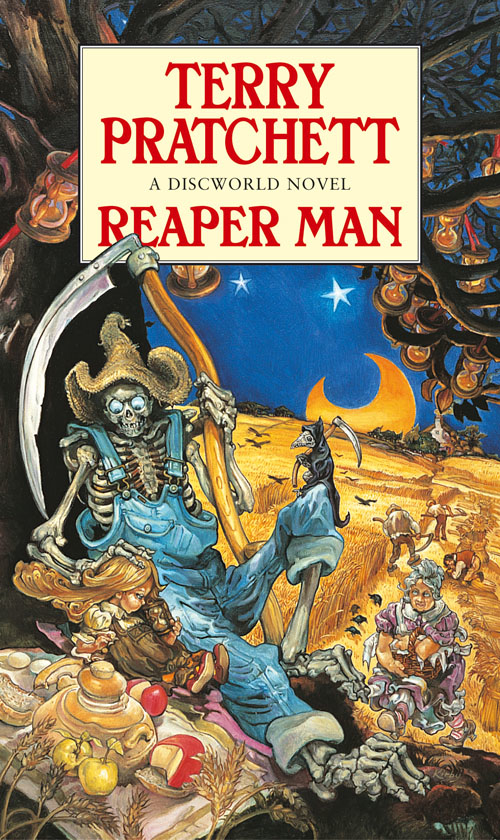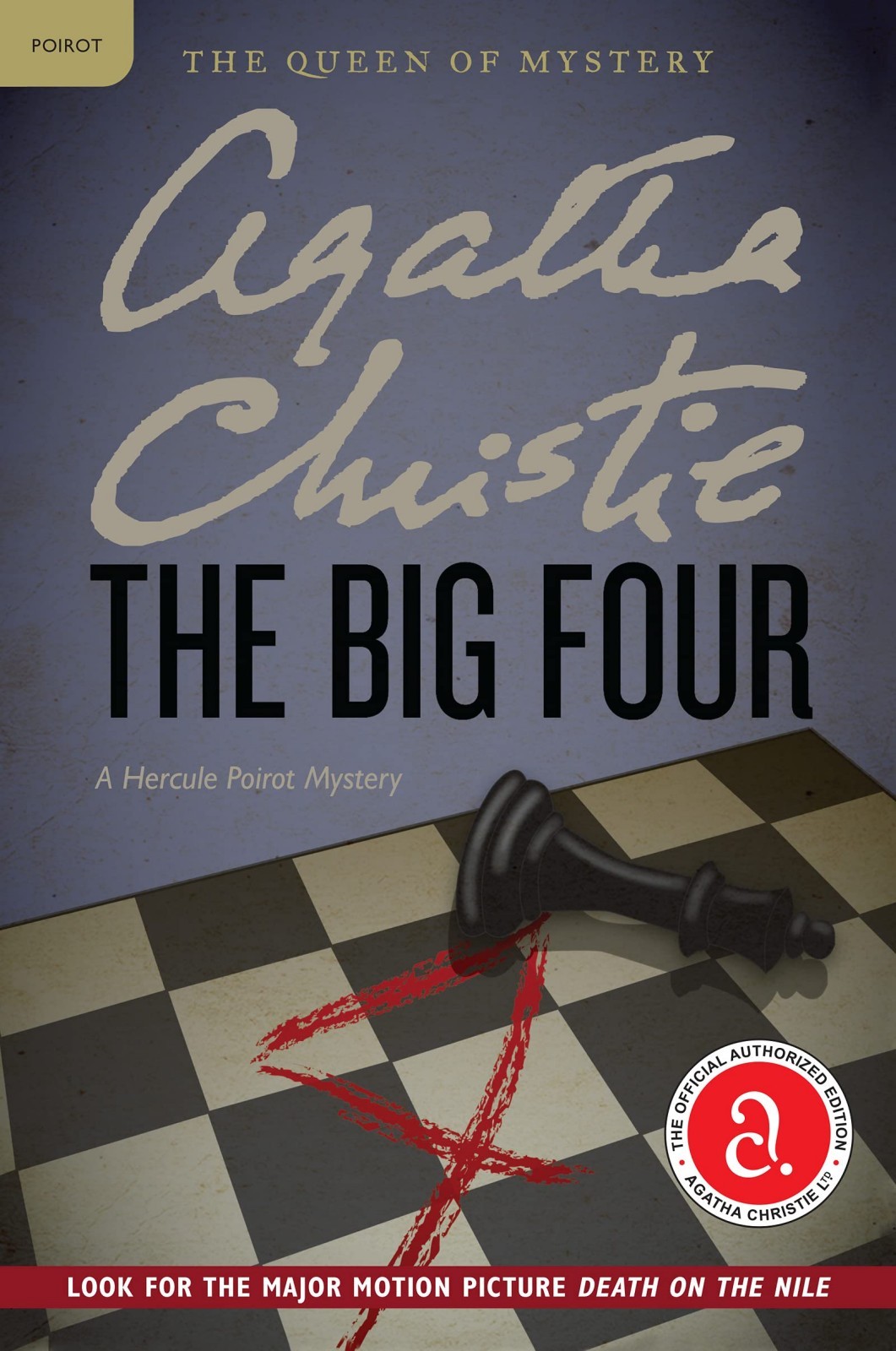Reaper Man (Discworld, #11; Death, #2)
Title: Reaper Man (Discworld, #11; Death, #2)

Author: Terry Pratchett
Published in: 1991
Date read: 18th September 2007
Score: 5/5
Genre: Fantasy, Comedy, Mystery
Plot: (Warning, may contain spoilers):
"Reaper Man" by Terry Pratchett is the 11th novel in his Discworld series, published in 1991, and the second to prominently feature Death as a main character. It's a poignant and philosophical satire on life, death, bureaucracy, and the nature of existence itself.
The story opens with a shocking development: the Auditors of Reality, the cosmic bureaucrats who ensure the universe runs according to strict rules, decide that Death has become too "personal" and "individual." He has developed a personality, a fondness for cats, and even a sense of duty beyond mere function. They deem him an anomaly and decide to "retire" him.
Death is given his marching orders and a limited lifespan, stripped of his powers. He is replaced by a new, more efficient, and impersonal form of death: the "New Death" (or various other more terrifying manifestations). This new, bureaucratic Death collects souls without compassion or understanding.
Cast out from his eternal role, the now mortal Death, calling himself Bill Door, attempts to experience life for the first time. He seeks honest work, briefly becoming a farmhand for Miss Flitworth, a formidable and pragmatic old woman. His attempts to understand human customs, emotions, and the mundane realities of existence are often hilarious and touchingly naïve.
Meanwhile, back on the Discworld, without Death properly doing his job, reality begins to fray. Life force (known as "narrativium") starts to accumulate, causing strange phenomena:
The recently deceased linger as "undead," but not in a vampiric or zombie sense – they simply don't quite die. This includes characters like Reg Shoe, a zombie who becomes an advocate for "undeath rights."
The Discworld's natural order is disrupted. Life that should have ended persists, leading to an overabundance of everything, from weeds to mice to humans.
The city of Ankh-Morpork is overrun with strange, impossible beings and paradoxical events as the balance between life and death collapses.
The Archchancellor of Unseen University, Mustrum Ridcully, along with the other wizards, notice the unsettling changes. They become aware that something fundamental is wrong with the cosmic order and try to understand why "death has gone missing."
As Death's remaining lifespan dwindles, and the Discworld descends into increasing chaos, the stage is set for a final confrontation. The climax involves Death (as Bill Door), having truly experienced life, confronting the "New Death" and the embodiment of raw, uncontained life force, to restore the cosmic balance. He must reclaim his scythe and his role, not just for himself, but for the sake of reality. "Reaper Man" is a profound and often melancholic tale about the necessity of death for life to have meaning, and the importance of even the most basic universal functions having a touch of personality.
Comments:
Very deep and thought provoking. Another excellent novel in the series. This is one of the books that best shows that these are not "children's' books", they are aimed at those (including some children) who think lots.
Books that we've read by Terry Pratchett (39):
The Colour of Magic (Discworld, #1; Rincewind, #1) (1983), The Light Fantastic (Discworld, #2; Rincewind, #2) (1986), Equal Rites (Discworld, #3; Witches, #1) (1987), Mort (Discworld, #4; Death, #1) (1987), Sourcery (Discworld, #5; Rincewind, #3) (1988), Wyrd Sisters (Discworld, #6; Witches, #2) (1988), Guards! Guards! (Discworld, #8; City Watch, #1) (1989), Pyramids (Discworld, #7) (1989), Eric (Discworld, #9; Rincewind, #4) (1990), Moving Pictures (Discworld, #10; Industrial Revolution, #1) (1990), Witches Abroad (Discworld, #12; Witches, #3) (1991), Reaper Man (Discworld, #11; Death, #2) (1991), Small Gods (Discworld, #13) (1992), Lords and Ladies (Discworld, #14; Witches, #4) (1992), Men at Arms (Discworld, #15; City Watch, #2) (1993), Soul Music (Discworld, #16; Death, #3) (1994), Interesting Times (Discworld, #17; Rincewind, #5) (1994), Maskerade (Discworld, #18; Witches, #5) (1995), Feet of Clay (Discworld, #19; City Watch, #3) (1996), Hogfather (Discworld, #20; Death, #4) (1996), Jingo (Discworld, #21; City Watch, #4) (1997), Carpe Jugulum (Discworld, #23; Witches, #6) (1998), The Last Continent (Discworld, #22; Rincewind, #6) (1998), The Fifth Elephant (Discworld, #24; City Watch, #5) (1999), The Truth (Discworld, #25) (2000), The Last Hero (Discworld, #27; Rincewind, #7) (2001), Thief of Time (Discworld, #26; Death, #5) (2001), Night Watch (Discworld, #29; City Watch, #6) (2002), The Wee Free Men (Discworld, #30; Tiffany Aching, #1) (2003), Monstrous Regiment (Discworld, #31; Industrial Revolution, #3) (2003), A Hat Full of Sky (Discworld, #32; Tiffany Aching, #2) (2004), Going Postal (Discworld, #33; Moist von Lipwig, #1) (2004), Thud! (Discworld, #34; City Watch, #7) (2005), Wintersmith (Discworld, #35; Tiffany Aching, #3) (2006), Making Money (Discworld, #36; Moist Von Lipwig, #2) (2007), Unseen Academicals (Discworld, #37; Rincewind, #8) (2009), I Shall Wear Midnight (Discworld, #38; Tiffany Aching, #4) (2010), Snuff (Discworld, #39; City Watch, #8) (2011), Raising Steam (Discworld, #40; Moist von Lipwig, #3) (2013)
This page was updated on: 31st July 2025

